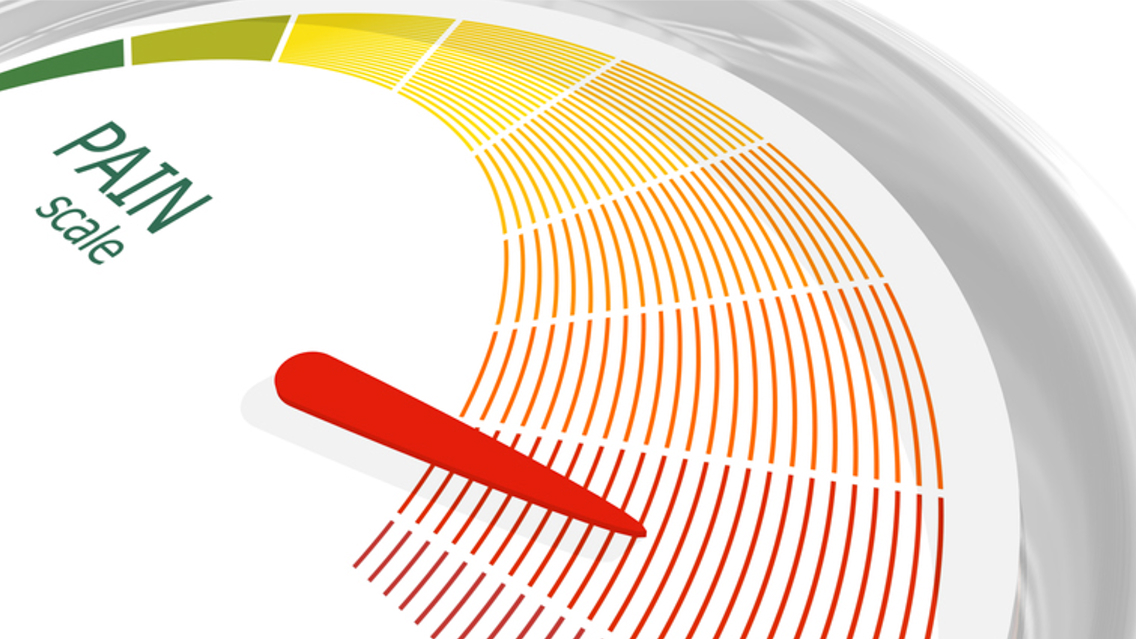Acute pain is usually sharp, short-lived pain caused by trauma or illness. Chronic pain lasts over six months.
Acute vs. chronic pain
There are two types of pain, acute and chronic, that can range from mild to moderate to severe. The pain can occur anywhere in your body, and it can feel different — shooting, stabbing, burning, aching, pinching, or pins and needles — for each person.
Back pain explained
Back pain is one of the most common reasons people talk with their doctor. It often results from overuse, injury, or even just normal wear and tear. You may experience it in one or more of these areas:
How to talk about pain
Pain is unique, and no two people experience it exactly the same. The pain scale helps you explain the intensity to your doctor so they can create the best treatment plan for your pain.

Have you been suffering from pain for more than 6 months?
Frequently asked questions
An interventional pain specialist is a doctor with advanced training in treating pain. They can provide treatment options not offered by primary care providers. If you would like to search for a pain specialist on your own, try our Doctor Locator.
You should never start or stop prescription pharmaceuticals without your doctor’s knowledge and recommendation. If you choose a drug-free pain management alternative, you should discuss how it will affect your current pain management program before you make any changes to it.



